
Swiss politicians concerned by Ukraine peace conference
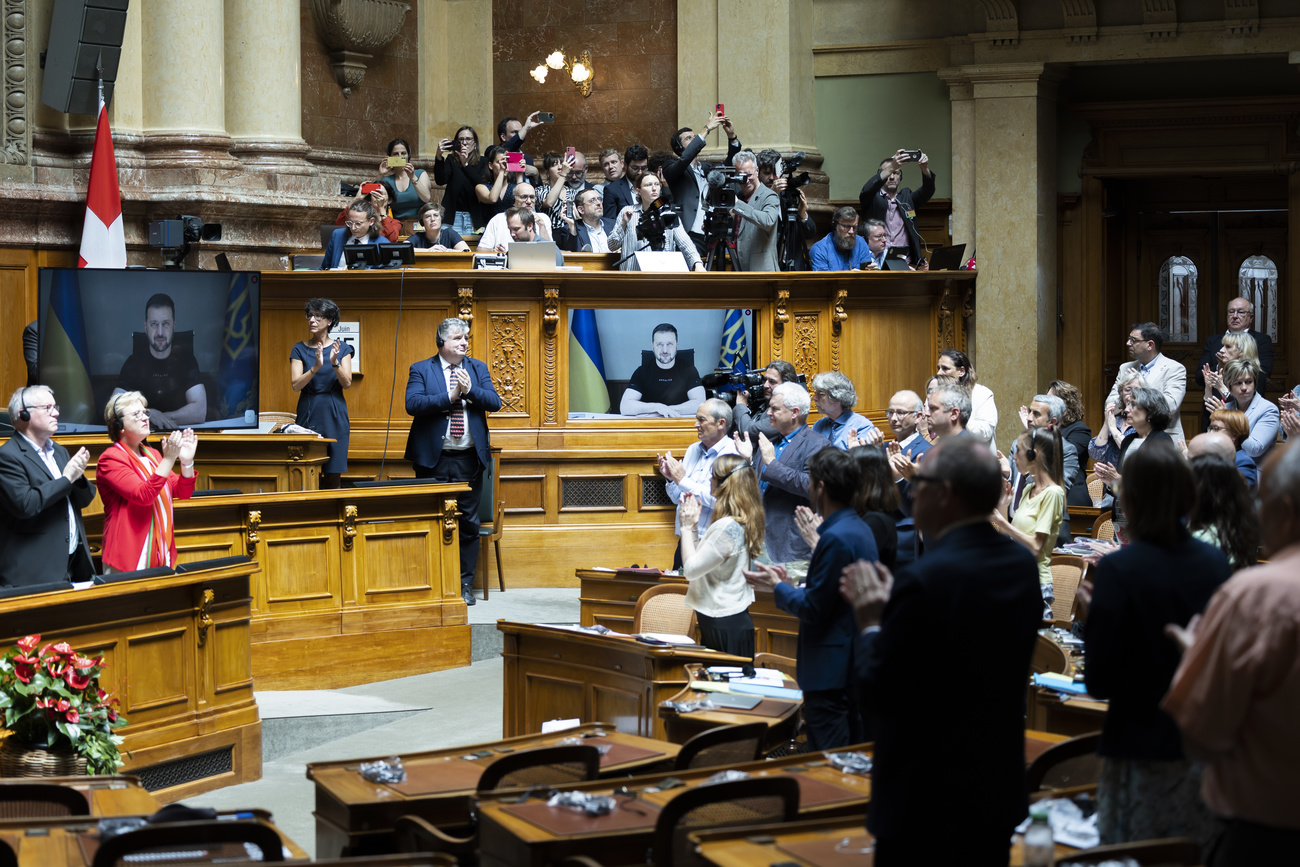
Officially Switzerland has not invited Russia to the Ukraine peace conference this weekend. Was this a mistake? The more fiercely Russia attacks the conference at the Bürgenstock resort overlooking Lake Lucerne, the louder the concerns in the Swiss parliament.
It all started on June 15, 2023, in the Swiss federal parliament in Bern. Ukrainian President Volodymyr Zelensky addressed the Swiss legislators over a video link. “I invite you to hold an international peace summit,” he told them. The call came as a surprise. Hardly anyone could see at the time what might be done with this idea.
Check out our selection of newsletters. Subscribe here.
Now Zelensky has got his wish. Exactly a year later, Switzerland is to welcome 90 states and organisations to a “Summit on Peace in Ukraine”. Delegations will discuss the matter at a resort on the Bürgenstock, a stony outcrop in central Switzerland which looks down on the blue waters of Lake Lucerne.
Seventy kilometres away, in the federal parliament in Bern, foreign policy experts from various political parties have been searching for urgent answers to several questions. Has Switzerland taken a one-sided position? Why was Russia not invited? What good can this conference do without Russia in attendance?
Swiss balancing act
Neutral Switzerland was caught on the wrong foot right from the start by the invasion of Ukraine. It needed to stake out a position in relation to the war, in alliance with the European states, on the side of international law, with the West. Pressure was coming from the EU and from the US.
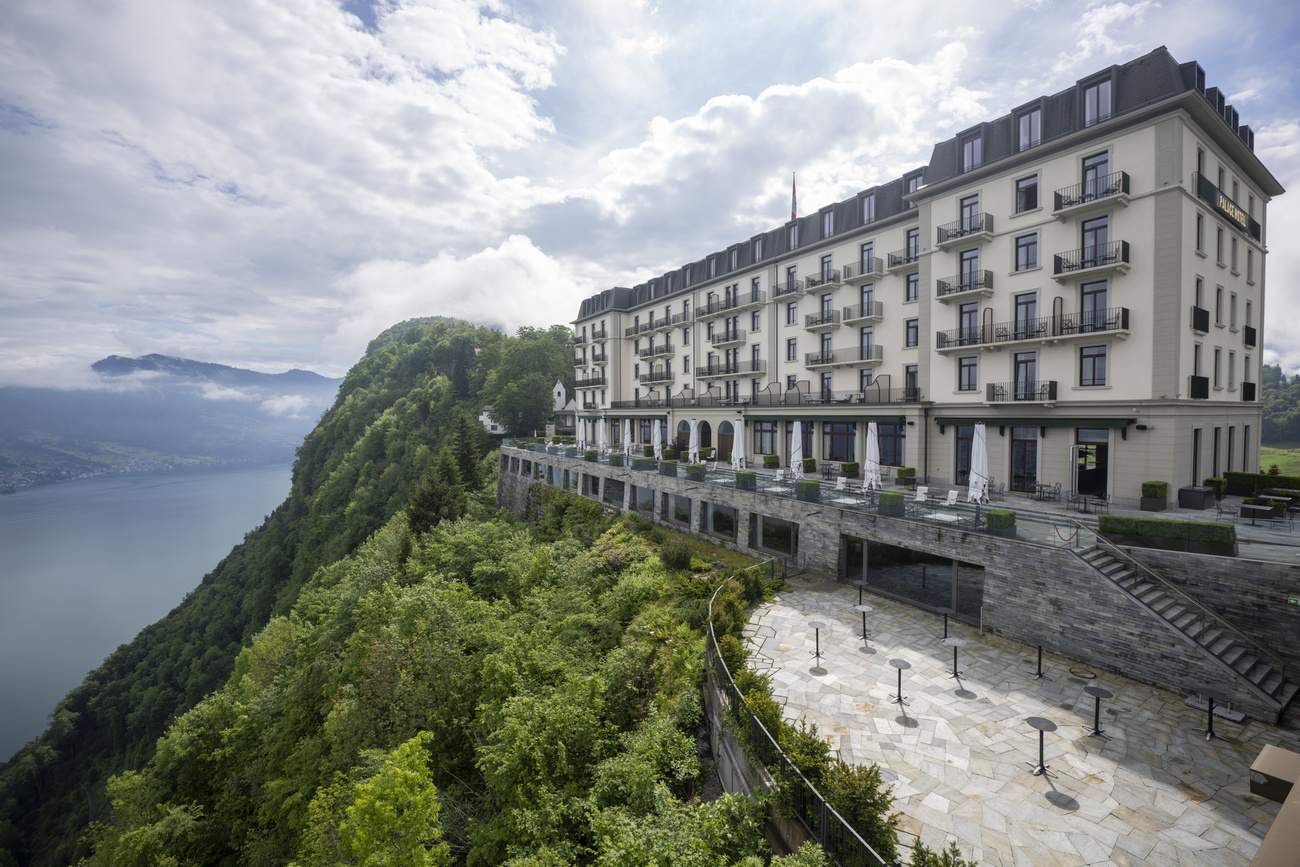
On the other hand, the privileged small nation had to maintain its unique role as a neutral state, pointing to its tradition as a potential broker for peace. At last, Switzerland can now play this role.
That is a good thing, because major international partners had been quite critical of Switzerland. That the centre of banking was not pursuing the trail of Russian wealth particularly actively was one criticism. That it would not allow other countries to deliver Swiss arms they had bought decades ago to Ukraine was another.
Neutral distance
Just how tricky it was for Switzerland to keep all its options open in the conflict in Ukraine can be seen from the federal government’s arm’s-length relationship with Volodymyr Zelensky. So as not to outrage Russia, the government ministers stayed away from Zelensky’s speech to the Swiss parliament. They maintained a neutral distance, and did not react explicitly.
But by the time Zelensky paid an in-person visit to Switzerland six months later, in January 2024, the government had not just adopted his idea but taken it over – even though it was apparent that Zelensky had proposed the summit to push his own ten-point peace plan and gather international support for it.
Lavrov’s brush-off
This didn’t go down well in Moscow, as Swiss Foreign Minister Ignazio Cassis found out when he got an earful from his Russian counterpart Sergei Lavrov. In an hour-long meeting they had in New York, Lavrov panned the proposed conference as one-sided.
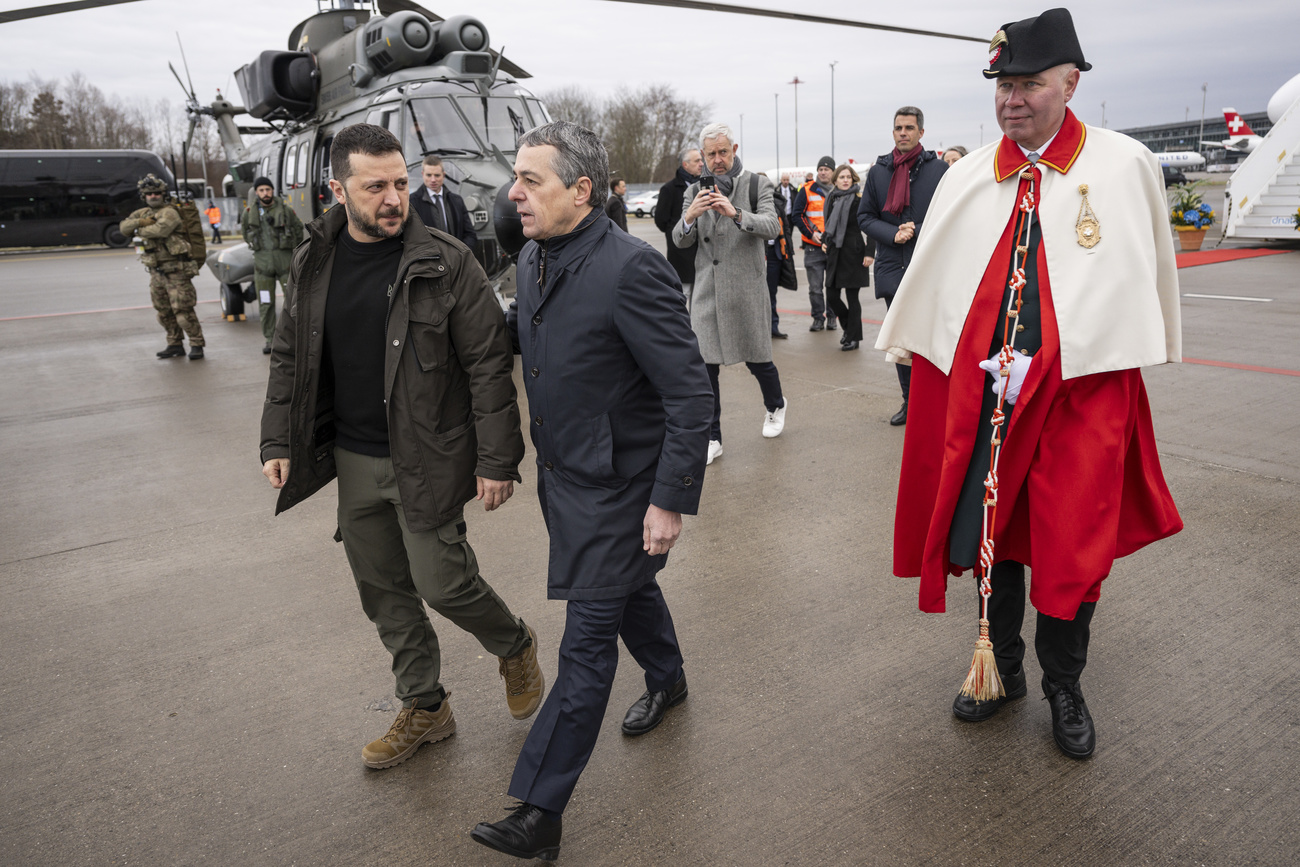
Russia did not want an invitation and would never accept one, Lavrov told Cassis, according to accounts of the meeting shared with SWI swissinfo.ch by sources in parliament. Accordingly, the government decided not to issue an official invitation, in order not to anger Russia further.
“Without Russia, we may as well forget it,” says Lukas Reimann, a foreign policy spokesman for the right-wing Swiss People’s Party. The party had made a point of boycotting Zelensky’s speech to parliament and had opposed the idea of the conference from the beginning. Franz Grüter, also of the People’s Party, adds: “This Bürgenstock conference has nothing to do with Switzerland’s good offices. Both sides would need to be involved.”
‘Low point in Swiss foreign policy’
Grüter sees this conference as “a low point in Swiss foreign policy”. Peace negotiation and good offices require shuttle diplomacy, talks, exploratory approaches and so on, he says, explaining that this careful groundwork takes time, and it doesn’t happen in the glare of publicity. “This conference was public knowledge from the start, and there was time pressure. It was the wrong approach.”

“It certainly was an original idea by the government,” says Nicolas Walder of the Green Party. “Announcing a conference without knowing who would be coming.” He too considers it a mistake for Switzerland not to have issued a “formal and unconditional” invitation to Russia. “There’s no doubt that Russia has broken international law and therefore can’t impose any conditions. But there should have been an invitation, if only to reassure all those who are still hesitating now.”
Yet Walder believes that this conference fits in quite well with the tradition of Swiss peace initiatives.
“Switzerland is the only country in the world trying to do something for peace at the moment,” says Laurent Wehrli of the Radical-Liberal Party. He chairs the foreign policy committee of the House of Representatives. “Of course it isn’t going to be perfect,” he says. “Of course there isn’t going to be peace on June 15.” But at a time when France and Germany are approving the use of their weapons to fire on Russian territory, Switzerland is taking another path, the path of peace, he says.
Rival conference?
Russia has gone to a lot of trouble in recent weeks to portray the Bürgenstock conference as a one-sided affair. It seems to be making good use of its increased influence with major developing nations to put pressure on them not to go to Switzerland. With some success, too. China and Brazil have put forward a plan for a conference of their ownExternal link, “with equal participation of all parties as well as fair discussion of all peace plans”.
“There’s no doubt that Russia has broken international law and therefore can’t impose any conditions. But there should have been an invitation,”
Nicolas Walder, Green Party parliamentarian
Not long after that, there were media reportsExternal link that China would stay away from the Bürgenstock conference and that Brazilian leader Lula da Silva would also decline the invitation from Switzerland. That was a definite setback for Swiss efforts to get the major developing nations involved. Foreign Minister Ignazio Cassis had actually travelled to China and Brazil to solicit them in person. But it counts as a success for Russia, seeing as Lavrov declared after his meeting with Cassis: “The only aim of this conference is to invite as many participants as they can get.” The only thing they really wanted to get out of it, he added, would be a cosy group photo as a sign of support for the “Zelensky formula”.
“The fact that China and Brazil have given this conference the cold shoulder is odd,” says Nik Gugger, a foreign policy spokesman for the Protestant Party. Brazil is said to be very interested in a free trade agreement with Switzerland, and China is hoping to renew its existing agreement, he points out. “It’s all the more encouraging to see that India is coming to Switzerland with a high-ranking delegation,” he adds.

Gugger says he has no doubt that Swiss diplomatic efforts are continuing to get Russia and China to take part, even at this late stage.
“Of course we would have preferred to see the number one from Russia, China and the US coming, for peace can happen only with Russia,” says the Centre Party’s Elisabeth Schneider-Schneiter. From a realistic point of view it’s better to take a stand, and to hold this conference, rather than have no one talking about peace, she believes. That Switzerland should be defending international law and Western values in the wake of the Russian invasion is for her the right thing and not to be questioned. “The security of Switzerland itself is also an issue,” she adds.
Lobbying on all fronts
In the last few days before the conference Swiss diplomats are still hoping to get the highest-ranking figures worldwide to come. It’s a tug-of-war with Russia, which regards it as a success every time someone turns an invitation down. Moscow is exerting a lot of energy on this, and many in the Swiss parliament see this as a sign that the stakes are high with this Bürgenstock conference.
Not only Russia is exerting pressure, with gas supplies or contracts for projects. Switzerland also is not above leveraging trade agreements or economic treaties in these negotiations, according to a number of parliamentarians with a close connection to the Swiss diplomatic corps.
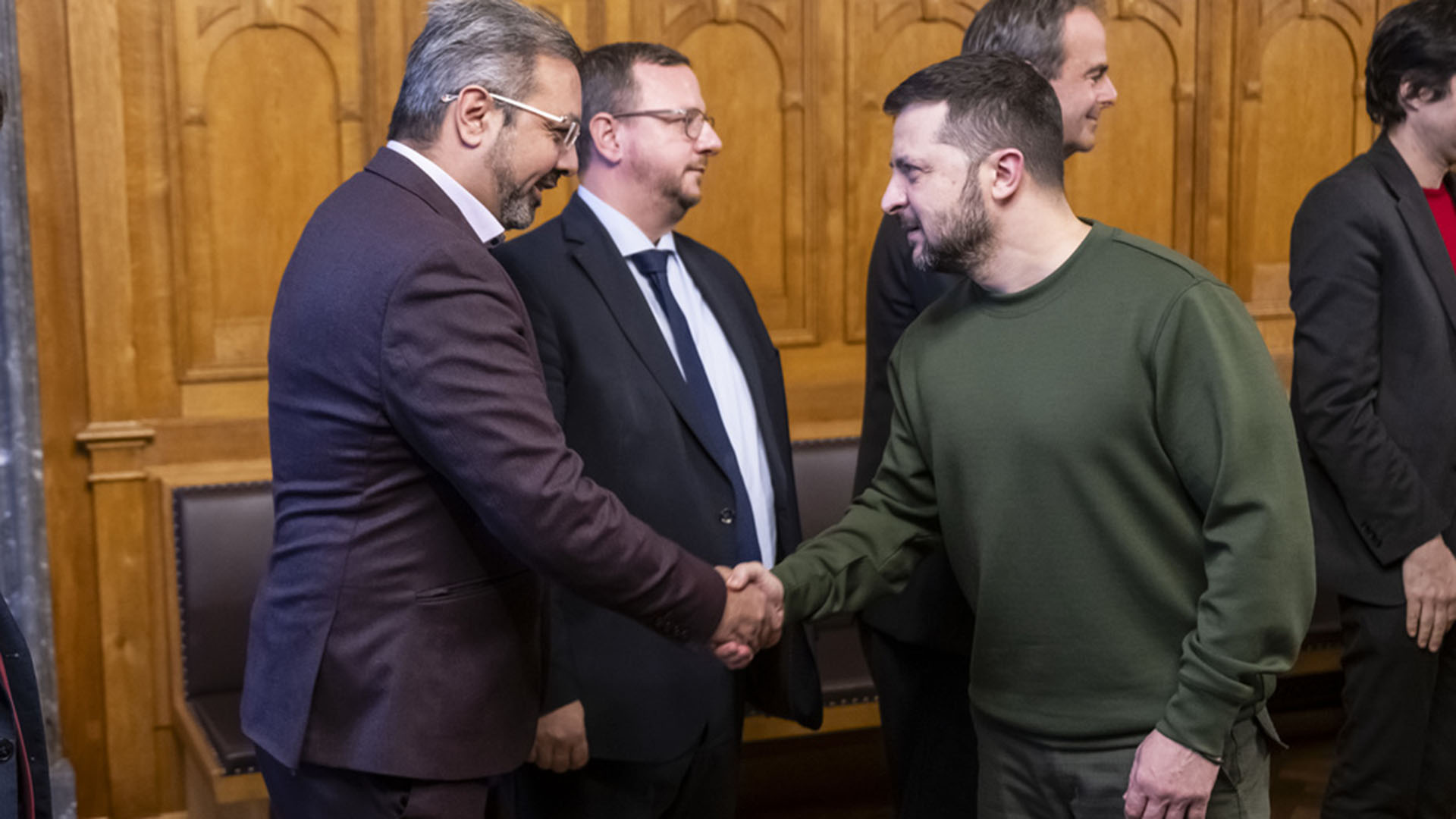
The countries of the Global South are a focus here. Switzerland hoped for their participation from the start and issued them invitations. “It is important for Switzerland to give a voice to those countries who for too long were not considered equal partners at such conferences,” says Sibel Arslan of the Green Party, who is vice-president of the Foreign Policy Committee.
Russia is trying hard to maximise its influence in the Global South. Switzerland is making a contribution to counteracting this, Arslan believes.
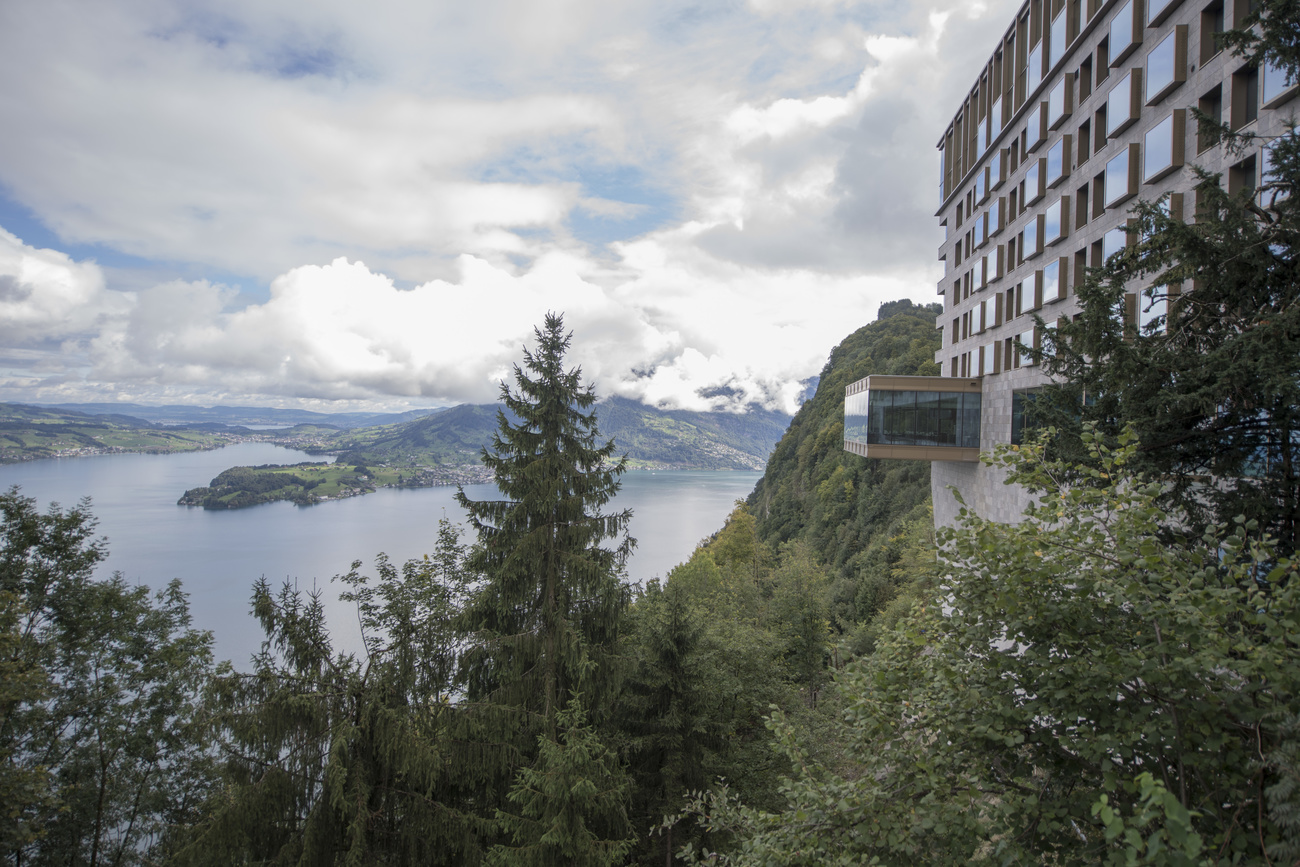
More
How the Ukraine conference in Switzerland aims to find a path to peace
More
Edited by Benjamin von Wyl. Adapted from German by Terence MacNamee/ts

In compliance with the JTI standards
More: SWI swissinfo.ch certified by the Journalism Trust Initiative































You can find an overview of ongoing debates with our journalists here . Please join us!
If you want to start a conversation about a topic raised in this article or want to report factual errors, email us at english@swissinfo.ch.